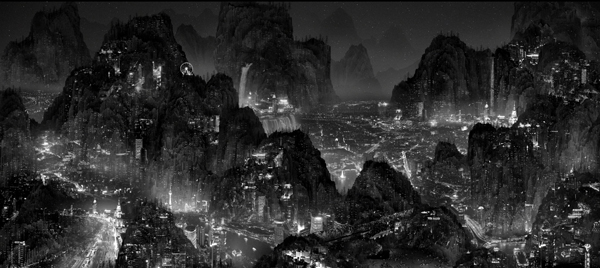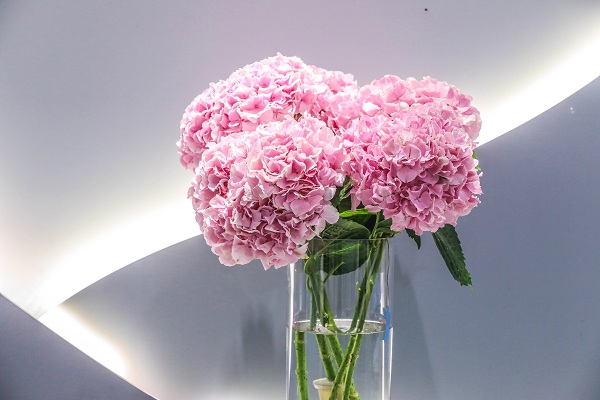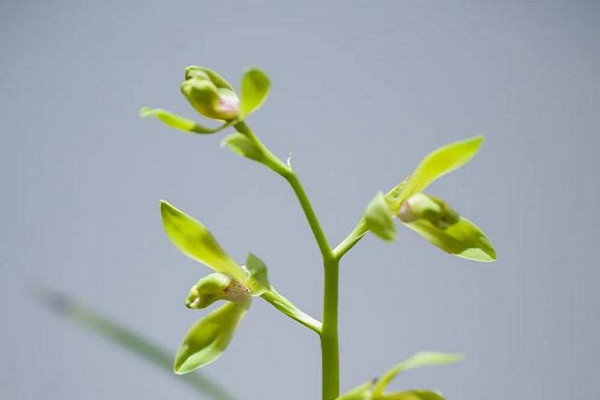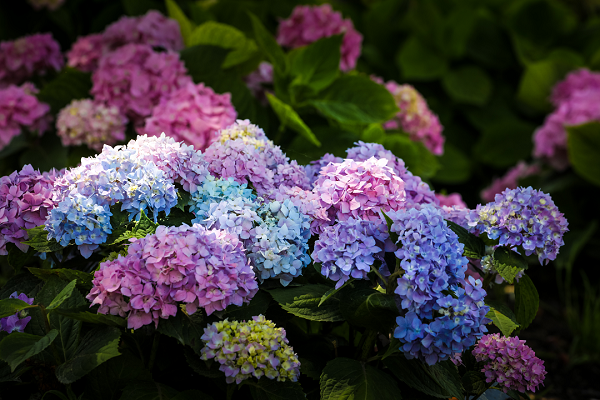 |
|
Video artist Yang Yongliang's work at the exhibition. Provided to China Daily |
Fang Zhenning, curator of the first section, believes the integration of architecture and natural landscape is important not only for sustainable development, but also caters to the human need for a spiritual home.
The contemporary art section is the largest part of the show. Artists convey Chinese landscapes, namely mountains and waters, in the most surprising ways.
Video artist Yang Yongliang presents scenes of intensive urban landscape - traffic flows, high-rise buildings and Ferris wheel - which are superimposed on a panoramic painting of natural sceneries featuring high mountains and waterfalls.
The end result is a video creation titled The Day of Perpetual Night, which portrays the real world in a fantasy way. The serenity of nature is in sharp contrast against the city rhythm, yet at the same time, they form a strange and harmonious flow of energy.
Many visitors stop to sit in front of an installation project by Song Dong, consisting of 60 big blocks made of different materials. The project features the five basic elements in ancient Chinese culture: metal, wood, water, fire and earth.
A Chinese paint brush and a small bucket of clean water are placed beside each block. Visitors are invited to write or paint with the water on the surfaces of the blocks. Water dries up quickly and the drawings with water disappear. "It reveals the artist's attitude toward existence," says Chen Xian, the museum spokesperson.
The third part is in a smaller exhibition hall, but of great importance. The section named Spirit features classic paintings from the corporate collection of Zendai Group.
Landscape paintings are arguably the most important part of traditional Chinese painting art, and the exhibits include pieces from masters such as Zhang Daqian, Qi Baishi and Fu Baoshi.
Himalayas Museum, founded in 2005, is a private establishment of the Zendai Group. It has been committed to the presentation and research of contemporary art, and the promotion of cultural exchange between China and abroad, says Dai Zhikang, chairman of Shanghai Zendai Group.
With the launch of the museum in the new site, Dai announced that it will focus on Chinese traditional culture and its interaction with contemporary art scene.
| Phantom swoops through Shanghai | Editor's picks in early July |


